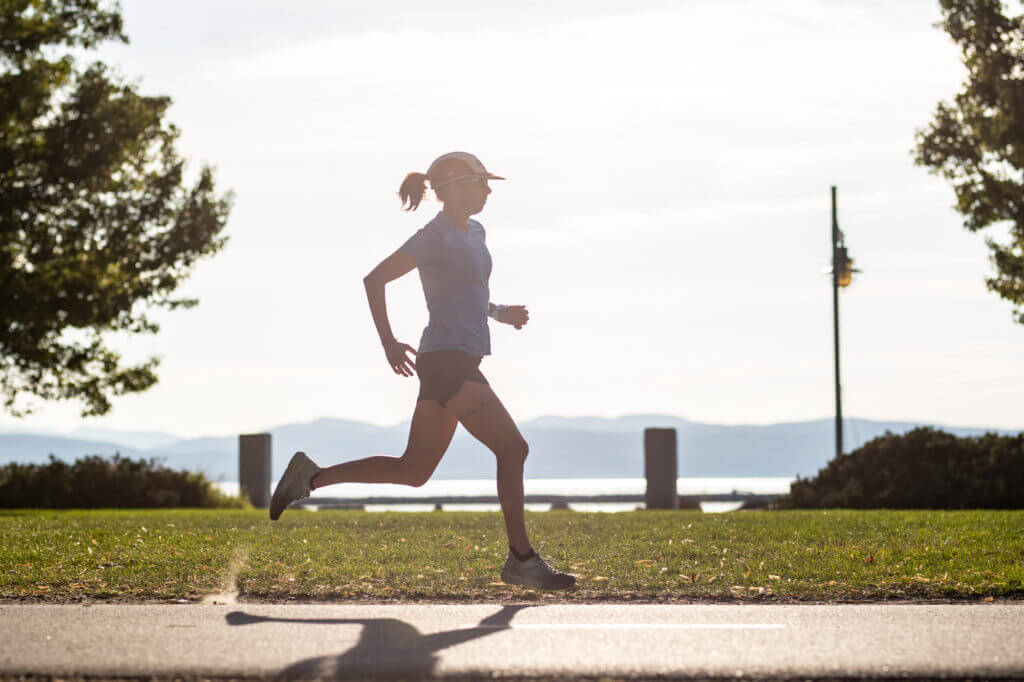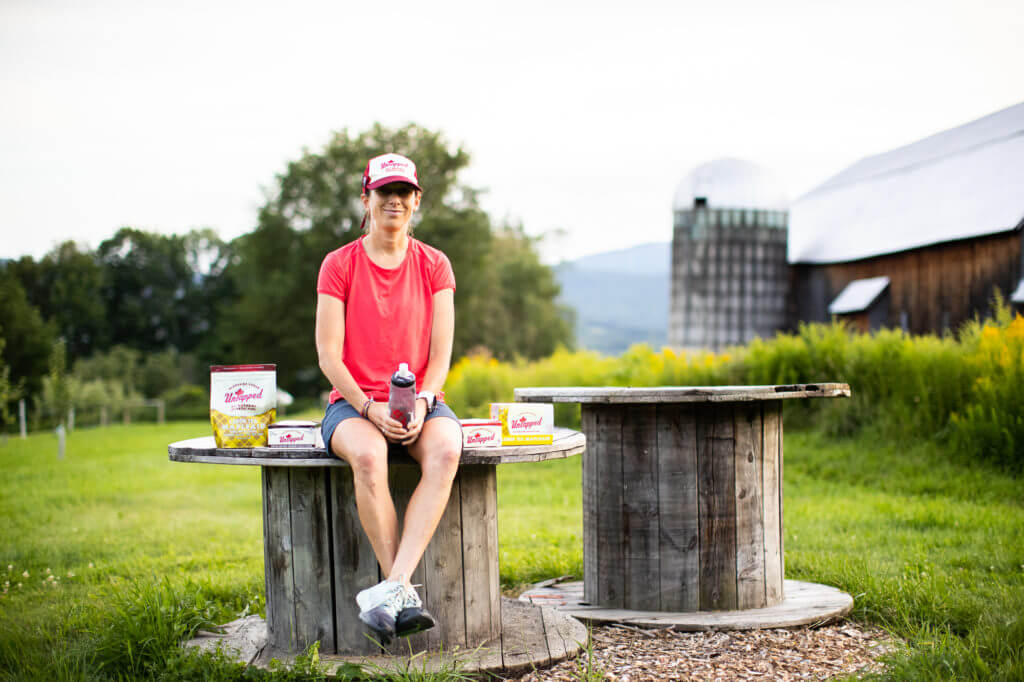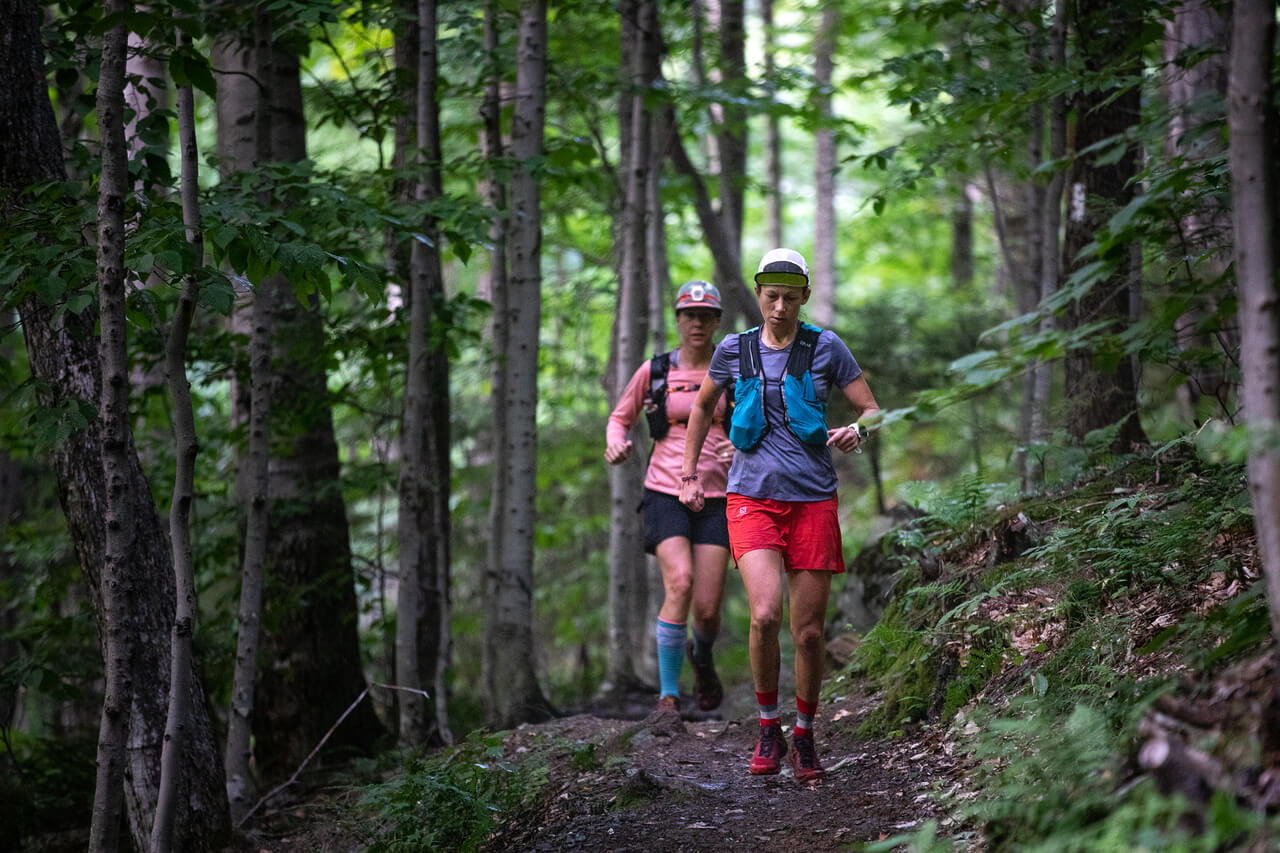With news of countless would-be runners taking to streets and trails en masse during lockdown and quarantine periods of the last few months, we thought we’d put out a few running focused questions to our resident expert, Aliza Lapierre. Ultra-marathoner, winner of countless races (we could actually count them, but it would take a long time), committed trail runner, and all around rockstar.
This is part one of a two-part series. Part one: Lower mileage athletes.
Aliza, clearly folks understand that running is the among most efficient ways to stay fit and that’s driven a lot of new folks to the sport, especially recently. For someone just starting or maybe just starting again after a long time away, what advice do you have? Certainly there’s a lot more to running than right foot, left foot, repeat!
To start running all someone needs is a little curiosity! Commit to getting out and remember to keep realistic expectations when beginning. If you go out and overdo it right off with pace or distance then the likelihood of injury will increase and your desire to go back out another day will decrease. When deciding how far or fast to go take into consideration your current fitness level and of course when out and running listen to your body. Tuning into your breath, feeling your heartbeat and listening to your footfall will give you a lot of feedback on if you are running a sustainable effort.
For both those new to the sport and veterans it can help to set goals. Whether running to improve your health, to connect with a new community, or to finish a race your purpose will help keep you with consistency. Not clear on your goal? That’s okay, start running anyway and you will unearth it along the way.
One of the great things about running is it does not require a lot of gear. The number one piece of gear that I recommend investing in is a good pair of shoes. Support your local running shop, go get fitted so end up in a shoe that is made for your foot type and the terrain you intend on running. While you are there ask if there are group runs or clinics from the shop as these are a great way to connect with others, while learning tips and techniques.
I truly believe that anyone can be a runner. Have patience with yourself, believe in yourself and if all else fails just keep repeating “right foot, left foot, right foot, left foot.”
What are resources you look to, publications you read or thoughtful folks you follow for insights in running?
I have several hard copy sources in my bookcase that I still to this day reference when questions arise with my own running. These books are also great to share with friends when they are starting their own journey with trail running and want as much information as you can pass along. Two of my favorites and most often referenced books are Where the Road Ends: A Guide to Trail Running by Meghan Hicks & Bryon Powell and The Ultimate Guide to Trail Running by Adam Chase.
In the virtual world I first and foremost use IRunFar as my launching point. Bryon Powell and Meghan Hicks strive to provide the best information regarding trail running with a mix of educational information, gear reviews and editorial insight. I also recommend reading what the editors of Trail Runner Magazine have put together in their “How to Trail Run” segment as it has a wide variety of content from technique to trail etiquette.

How about for someone looking to level up their running whether it is a first marathon, a first ultra marathon — what separates those folks other than just time and miles?
I have found that the biggest step from running for fun and fitness to toeing the line at a first marathon or ultra marathon is commitment. Training for these events is an undertaking and requires time management and some sacrifice, but I assure you that the self discovery that comes along with the way is worth it.
With the higher demands on your body it becomes more about your entire self being, as everything plays a part. Sleep, nutrition, recovery and tuning into your state of mind and body are all important.
Two books that I highly recommend for any trail runner looking to take the next step are Running Your First Ultra by Krissy Moehl and Training Essentials for Ultrarunning by Jason Koop. It is also key to remember that trail runners are a community and that these individuals that make up the collective group are an invaluable resource. Their stories, knowledge and experience is something that is priceless and helping people get into the sport is something that veterans take pride in.
Obviously, we’re a nutrition brand. How do folks know when and how much to fuel?
I am a firm believer that every individual is different and what works for one person might not work for another so there is some trial and error. Trying things out during training allows you to practice eating and drinking and fine tuning things in a non stressful way. It also allows you to help train your gut to help move carbohydrates into the bloodstream.

I aim to eat 200-250 calories an hour during exercise longer than 2 hours in duration. These calories typically come from a combination of sources such as UnTappeds and Lemon Tea Mapleaid. I do rely on my watch to help me stay on track with my calorie intake as I am to eat one syrup packet, which is 100 calories, about every half hour. Breaking the calories up and not consuming them all at once allows on top of my energy levels before I feel a decline. To help with hydration I take small sips of Lemon Tea along the way rather than overwhelming my stomach by gulping a large amount at once.
Thanks for reading. For part two of this series geared towards taking your running to the next level, visit here.
